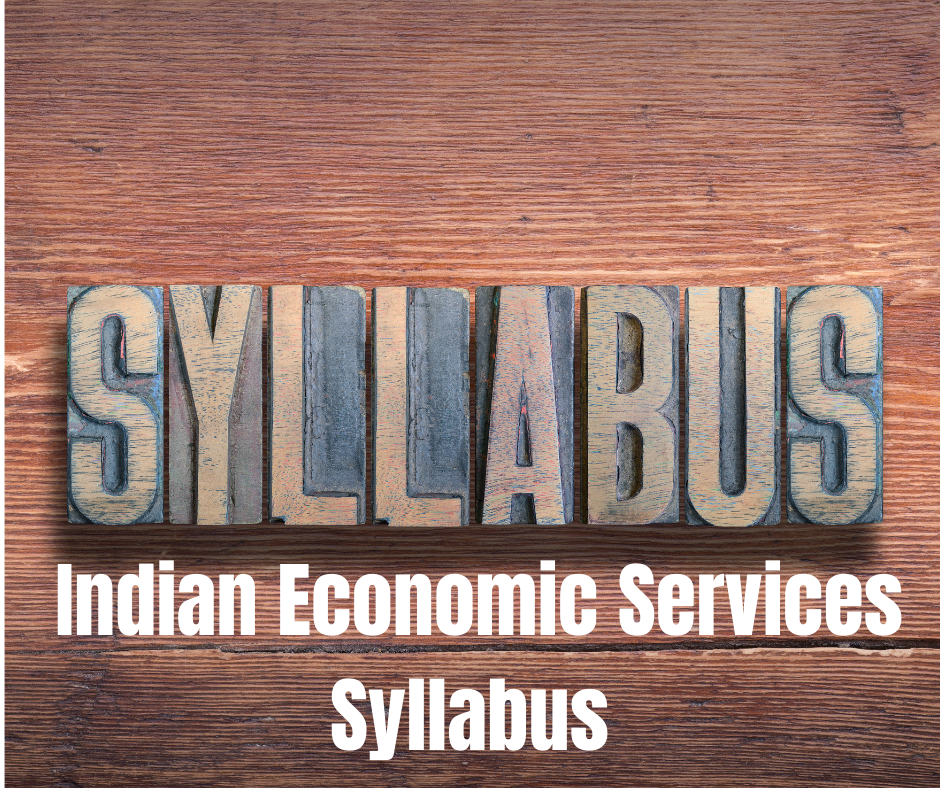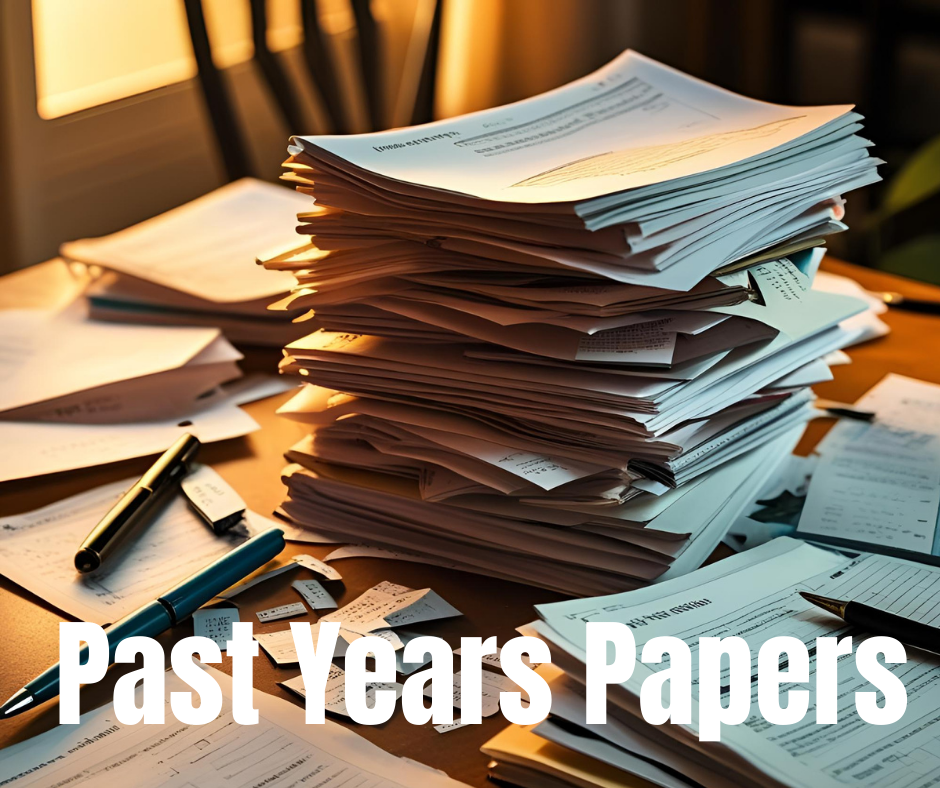Welcome to Nishant Mehra’s Indian Economic Services Coaching, where we help students prepare seriously for the IES exam. Indian Economic Services Exam is for you if you want to get in to economic policy making.
At Nishant Mehra Classes, I have always felt, that every year, I am also preparing with you. I am making notes , and all of you, my students, are sitting around me, watching me, asking questions, and also making notes alongside. I started teaching economics, at ECOPOINT, in 2009, for MA Economics Entrance Course, and started IES course in 2016. With every batch, notes have improved, more questions are included, more past years questions are organically added in notes. It’s like I am also giving this exam with you. Every year, understanding has gone deeper. This is the fun of teaching, when I suddenly someday, even while reading the same book, realise some new connection within topics, or some other way of solving the same question or some new perspective of looking at the same problem. Every batch has taught me, as I have taught them. Every year, course gets improved.
Over the years, we develop some intuition, insights about the kind of questions asked, about how answers have to be written. And that adds to teaching experience in the classes. I feel, I am the learner of this subject, which I will always remain, throughout life, and in the process, I am just sharing whatever little I know.
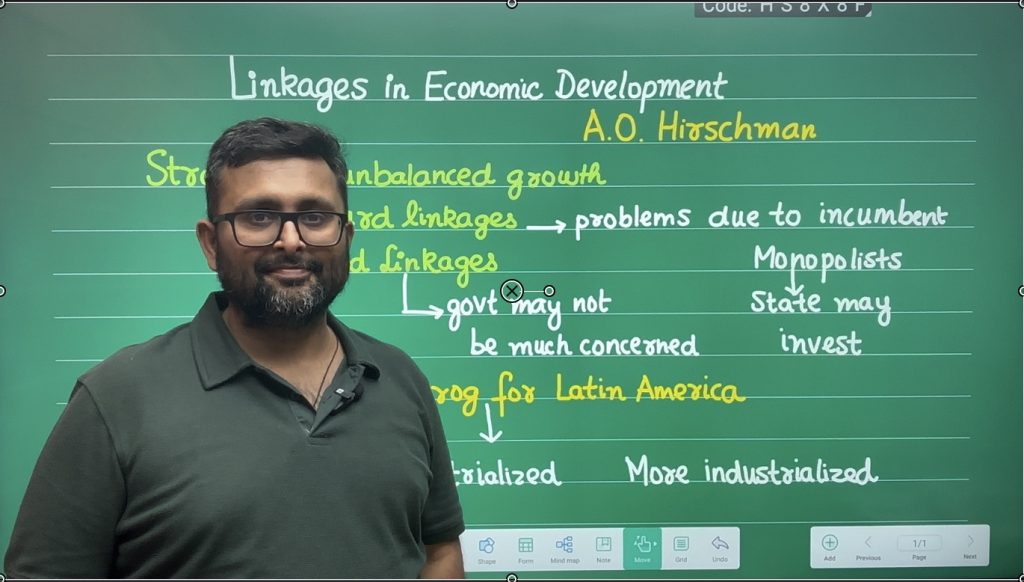
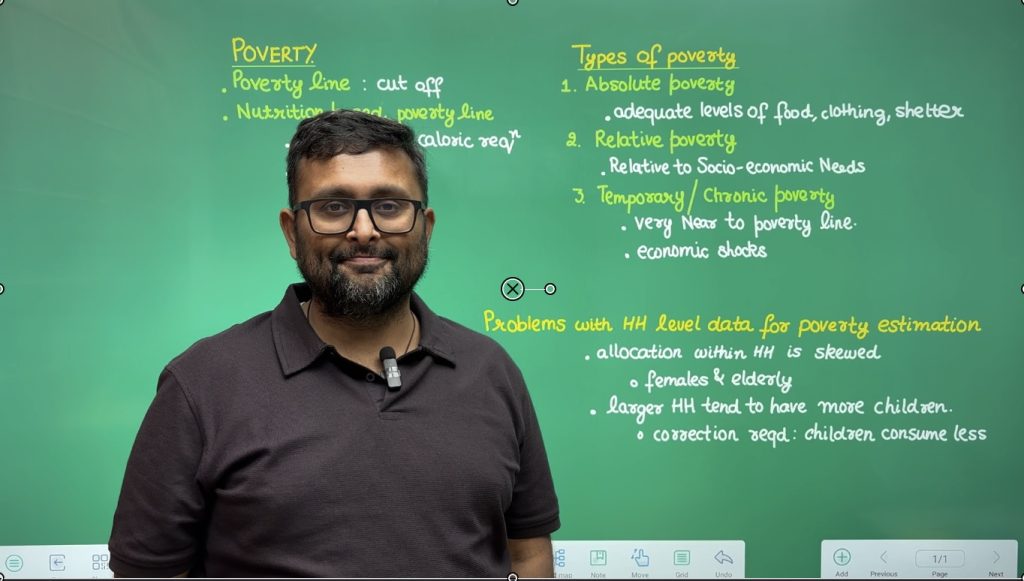
Our Indian Economic Services Coaching focuses not just on syllabus completion but also on answer writing and exam strategy. In my classes, I focus on completing the syllabus, with an eye on past years questions, as they are the best guide, about how far and deep, in the topic, we have to go.
First, we have to develop a conceptual clarity, be it micro, macro, mathematical economics, or a theoretical subject like Indian Economics. You should be able to write in your words, what you have been taught. I have always urged my students to make smaller notes from my notes, in the first round of revision. And revision has to start from the first class itself.
Second, we work a lot on answer writing. It’s not enough to know things , you have to present your thoughts clearly, in a way UPSC wants to see. I also write answers with you, and watching me, you will also develop that habit. But this is something which every student has to do independently too, even for questions which I have done in the class, they should always think, can they improve it even more.
Third, we study smart. It doesn’t mean we study less. There’s a huge syllabus, and in the first go, everything has to be done, every word which is written in the syllabus, every word. We will write notes and questions asked for every word in the syllabus, and sometimes, even for the topics, which are not directly mentioned in the syllabus, but asked in past years. But while revising, you may focus more on few topics, which were asked several times in previous years.
This isn’t just about passing an exam. It’s about helping you grow into the kind of economist and policymaker you want to be. This will surely deepen your love for the subject, if you attend classes regularly and make notes.
Who Should Join Our Indian Economic Services Coaching
This Indian Economic Services Coaching is designed for postgraduates, undergraduates, working professionals, and repeaters preparing seriously for the exam.
- If you’re a postgraduate in economics who’s now aiming for a career in policymaking, this course will help you move beyond just classroom theory to the level UPSC expects.
- If you’re an undergraduate with strong fundamentals and an early start, then also this course is for you. Many students join in their first year of post grad for an early start.
- If you’re a working professional trying to balance job responsibilities with exam prep, then also, your time in researching a material is saved. You can easily follow classes and get your syllabus completed
- And if you’ve tried the exam before but feel you need better preparation, a smarter plan, and more disciplined approach, then also this course os for you
What We Cover – Paper by Paper
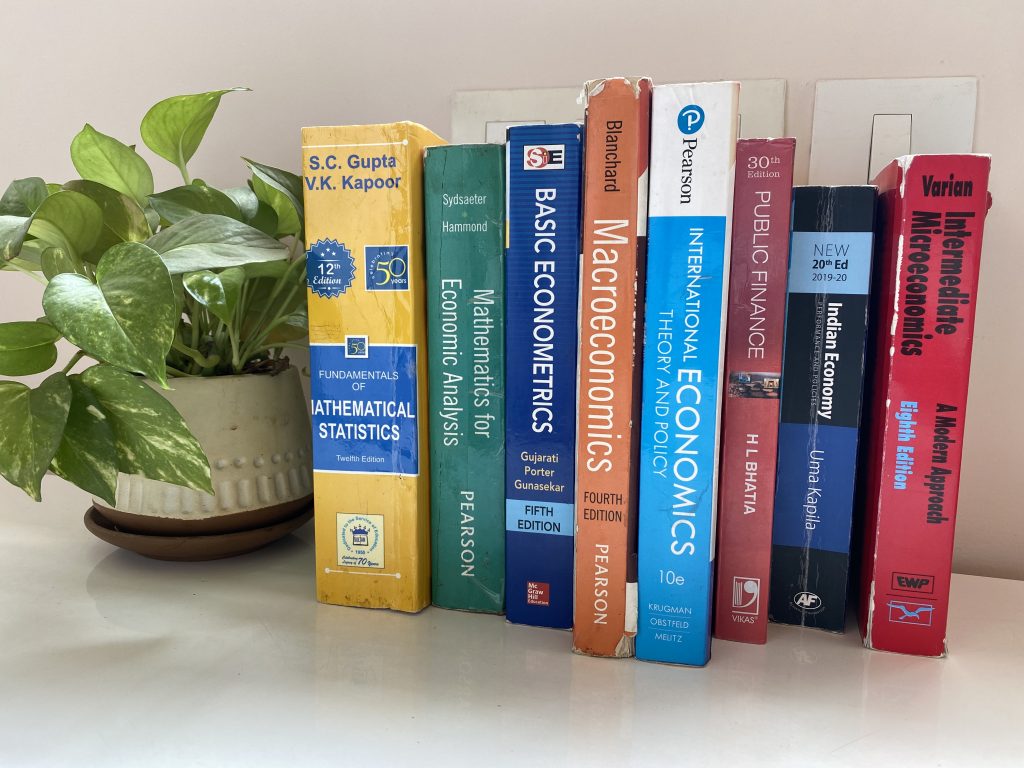
The Indian Economic Services syllabus can feel huge at first, but we’ll go through it together, step by step. You can click here to see the full syllabus
General Economics Paper I
This is one paper, where they have started asking several mathematical questions and derivations. We will complete the entire syllabus, and at the same time build confidence in tackling numericals at the level, at which they are asked in previous years. This broadly covers Microeconomics, Mathematical Economics, Statistics and Econometrics
General Economics Paper II
This is one of the biggest paper, in terms of syllabus. UPSC has started asking questions, which can cut across topics. We will develop intuition and practice such questions. This covers many topics, like Macroeconomics, Development Economics, International Trade, Money and Financial Markets, and few other smaller topics
General Economics Paper III
Over the years, I have found this to be one of the most scoring papers. This also has the smallest syllabus, among all four economics papers in IES exam. But again, few questions in the previous years were quite challenging, and demanded a deeper connective insight across topics. This covers, Public Finance, Environmental Economics, Industrial Economics and Planning.
Indian Economy Paper IV
This is the most wide syllabus, out of all papers. It covers everything from federal finance , to different sectors in the economy and other topics like poverty, employment, migration, urbanisation, banking etc. We have to make notes from standard books and economic survey, and other government publications, to ace this paper.
How We Help You Prepare for the Indian Economic Services Exam
Focus on completing the syllabus and at the same time, give an idea about topic’s relative importance
Connect theory with real-world policy making, particularly useful in Paper 3 and Indian Economics
Practice past year papers and review model answers to improve writing
Once you have made notes, revised well, you are confident to sit in the exam
How You’ll Learn With Us
Join live online classes from anywhere, or if you miss any, watch recorded live online class sessions anytime.
Take part in interactive classes where you can freely ask questions and clear doubts.
If your doubt still remains after the class, you can always WhatsApp me your doubt, I will solve that
Take part in 12 full-length mock tests, with feedback to help you improve.
Toppers Speak About Our Indian Economic Services Coaching
FAQs about Indian Economic Services in general
Is Indian Economic Service equal to IAS?
While both are prestigious civil services, they serve distinct purposes and have different responsibilities and career paths. IES officers specialize in economic analysis, policy advice, and project evaluation, while IAS officers handle general administrative and developmental functions. Hence, Indian economic services (IES) is not equivalent to IAS
What is the qualification for Indian Economic Service?
To be eligible for the Indian Economic Service (IES) exam, candidates must have a postgraduate degree in Economics, Applied Economics, Business Economics, or Econometrics from a recognized Indian or approved foreign university. Applicants must also meet specific nationality requirements, including being a citizen of India
Is Indian Economic Service grade A or B?
The Indian Economic Service (IES / Service) is an organized Group ‘A‘ Central Service.
How many attempts for Indian Economic Service?
The number of attempts for the UPSC Indian Economic Service (IES) and Indian Statistical Service (ISS) exams depends on the candidate’s category: General category candidates are allowed 6 attempts, OBC candidates can attempt up to 9 times, while SC/ST candidates have unlimited attempts. But do check the latest notice regarding eligibility and number of attempts
What is the salary of Indian economic service officer ?
The salary of Indian Economic Service (IES) officers starts at approximately ₹56,100 per month and can go up to ₹2,25,000 per month based on rank and experience. In addition to the basic pay, IES officers receive multiple allowances such as Dearness Allowance (DA), House Rent Allowance (HRA), and Travel Allowance (TA). This may change.
What is the age limit to appear for Indian economic service exam?
For General Category it is 30 years. This may change, for more information, kindly check the latest official notification
Indian Economic Services Coaching: Course Options and Fees
I know every student has their own journey, so I’ve designed a few options to match different needs and situations. Here’s a quick look:
Indian Economic Services Course — ₹38,000
This is the core course. You get live classes where we break down concepts together, discussions on past year papers, full access to class recordings so you can revise anytime, and a space to clear your doubts as they come up.
Indian Economic Services + Test Series — ₹48,000
If you want to go all in, this is for you. You get everything from the main course plus 12 full-length mock tests, with detailed feedback from me. This is where we sharpen your writing and time management, so you walk into the exam fully prepared.
IES + RBI Grade B DEPR Combo (Popular Choice) — ₹45,000
A lot of students prepare for both IES and RBI DEPR together, and this combo helps you do that smoothly. You’ll get the full course for both exams, live sessions, recordings, and extra preparation focused on the RBI syllabus.
IES Test Series Only — ₹12,000
If you’ve already prepared the syllabus and just want to test yourself, this option gives you 12 full-length mock exams — three for each paper — with model answers and feedback on how to improve.
In case of any query, please call us 9999886629
FAQs about Indian Economic Services Course at Nishant Mehra Classes
Will you cover entire syllabus?
Yes, we will entire syllabus, covering each word given in the official syllabus
How will I make notes ?
You will make notes, alongside me, in the class. I will mostly write everything, you will also do the same.
How will I revise ?
You dont have to wait for the entire syllabus to get over, you should start revising from day 1. I would suggest once class is over, you have written with me, now make a one page note of say 6-7 pages which we have written in the live class, and revise that. If you get stuck, you always have notes to back upon. But you know what, everyone will have a different way to revise, so you follow that, which suits you the best
What is the pricing of this course?
I have mentioned it above, kindly read the pricing for different courses
How long will I have access to this course?
For 365 days from the date of the first login, once you have made the payment
What will be the timing of the classes ?
8 PM to 9 PM in the evening from Monday to Friday
How many classes you will take per week? In a year?
I will take five classes per week, Monday to Friday, 8 PM to 9 PM. This is an extremely huge course, I may take classes for around 10-11 months to complete the syllabus
Is this course huge and difficult ?
Well, this is huge for sure. Just count the number of economics subjects you have to do, Microeconomics, Macroeconomics, Mathematical Economics, Statistics, Econometrics, Financial Markets, Development Economics, Growth Economics,History of Economic Thought, Planning, International Trade, Public Economics, Industrial Economics, Environmental Economics, and a very detailed Indian Economics. 15 subjects. So yes, it is huge. Its size makes it difficult. I would not say it is difficult
If I miss any live class, then will I get a recording?
Yes, every class is recorded. Every year course improves, additions are made. If you miss any live class , you can always watch recording
Should I join coaching ?
How can I answer that? That’s what you will have to decide. But you have to understand , what is the expectation from joining a coaching. I can help you in completing the syllabus, complete previous years, take your doubts, if you show me any answer , I can help you improve it. And most importantly, coaching can help in streamlining your notes and preparation, and build a discipline to come to the classes regularly, make notes, revise them and build a stamina to write a lot and well. So you have to make that decision.
I am working, can I also do the preparation ?
Many of my students, are working professionals, and have been coming to my classes. Many are just focusing on this preparation. So if you are asking, you are working and you can also prepare side by side, then answer is yes, you can. You will have to manage your time well, and for that matter, anyone who is preparing such a big exam will have to manage their time very well. Anything worthwhile will require sacrifice in terms of time and effort
Can I join classes midway or in the beginning?
You can join at any time. You will anyways have recordings of all live classes. And this course runs in a cycle, so from wherever you start, in one year, your entire syllabus gets covered in live classes. Although course has just started around a second week of July, so its better to start early
When do you start Test series ?
Generally, I start Test series, for Indian Economic Service Course, in January. It runs for around five months
I want to see demo, before joining? How do I get that? And finally two do I enroll in your classes
- Please register by clicking Registration
- Give all details as required, we will send you a demo
- Once satisfied with the demo, reply your final acceptance at the mail given, we will give you payment options
I want to talk to you , I have few more queries?
Please call at 9999886629
